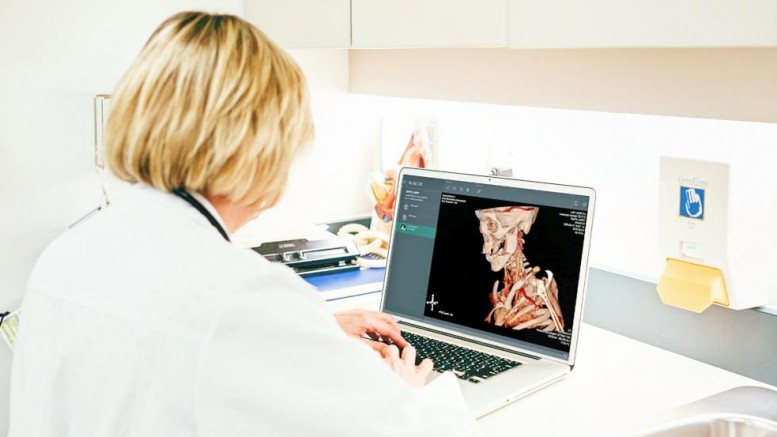In 2016, the University of Calgary’s McCaig Institute for Bone and Joint Health opened its new Centre for Mobility and Joint Health (the MoJo) which provides access state-of-the-art imaging, motion assessment and diagnostic equipment to researchers developing new technologies for the prevention, early diagnosis and treatment of bone and joint conditions. Included in these advanced imaging tools is ResolutionMD, which serves as a secure, diagnostic quality image viewing platform for researchers located anywhere on campus or in Canada supporting fast, efficient and effective collaboration.
ResolutionMD, plays a key role from the beginning to the end of many studies conducted at the MoJo. For example, all the MoJo studies start with the development of imaging parameters which requires collaboration between the Centre and researchers.
“The lab takes a set of images and then researchers use ResolutionMD to an look at the images and determine if the protocols are correct for the study, or if they need to be revised. With ResolutionMD, they can do this review at their convenience, from any device, anywhere at any time, which makes this phase of the research more effective and efficient,” explains Yves Pauchard the MoJo’s scientific manager who oversees the Centre’s technical and business activities.
Secure, Internet-Based Access to Diagnostic Quality Image Viewing
ResolutionMD’s security features and zero footprint implementation are also critical to supporting the MoJo’s image viewing needs. For security, the MoJo integrated support for the University’s SSL certificate and LDAP directory into the image viewer. This integration enables the University’s main IT department to configure passwords and IDs issued by them to provide secure remote access to the MoJo’s images. With this support the MoJo doesn’t have to manage security and researchers do not need another log in and password to access the MoJo images, all of which contributes to efficient, timely and secure collaboration.
Enabling users to view the images via the Internet instead of a VPN tunnel contributes significantly to the MoJo’s goal of giving collaborating researchers access to images. Because ResolutionMD provides diagnostic quality views of DICOM images, researchers are not giving up data quality for this ease of access.
“Setting up VPN access is very time-consuming and some researchers don’t have the right tech on their end to do it. With ResolutionMD’s support for Internet access, we can bypass that technical hurdle for collaborative research projects,” comments Pauchard.
Providing Radiology Quality Access for Non-Radiologists
While the MoJo does provide imaging for radiologists doing research, many of the studies it performs are for kinesiologists, engineers, scientists and other types of clinicians such as orthopedists. The MoJo currently has a study lined up that will provide images to two orthopedic surgeons. For the study, they will be viewing images and discussing them with study participants, which will be facilitated by ResolutionMD.
“These clinicians and scientific collaborators are excited about the immediate access to diagnostic quality images that ResolutionMD provides. They tell me, ‘It works. It was great to address the data right away,’” says Pauchard.
Learn more about ResolutionMD’s support for effective clinical collaboration through its secure, platform-agnostics remote access to diagnostic-quality DICOM images from any device, including laptops, desktops, tablets and smartphones.

